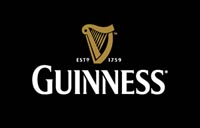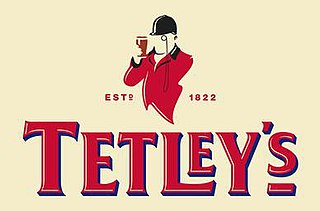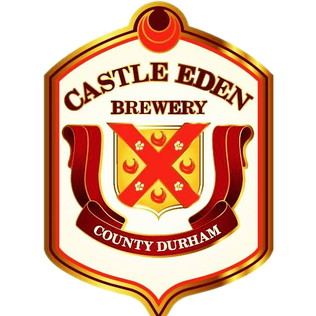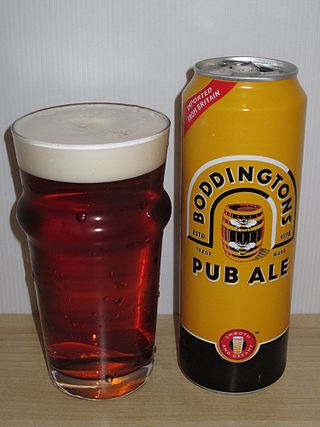
Draught beer, also spelt draft, is beer served from a cask or keg rather than from a bottle or can. Draught beer served from a pressurised keg is also known as keg beer.

John Smith's Brewery in Tadcaster, North Yorkshire, England, produces beers including John Smith's, the highest selling bitter in the United Kingdom since the mid-1990s.

Boddingtons Brewery was a regional brewery in Manchester, England, which owned pubs throughout the North West. Boddingtons was best known for Boddingtons Bitter (Boddies), a straw-golden, hoppy bitter which was one of the first beers to be packaged in cans containing a widget, giving it a creamy draught-style head.

Bass Brewery was founded in 1777 by William Bass in Burton-upon-Trent, Staffordshire, England. The main brand was Bass Pale Ale, once the highest-selling beer in the UK. By 1877, Bass had become the largest brewery in the world, with an annual output of one million barrels. Its pale ale was exported throughout the British Empire, and the company's red triangle became the UK's first registered trade mark.

A keg is a small cask used for storing liquids. Wooden kegs made by a cooper were used to transport nails, gunpowder, and a variety of liquids. Nowadays a keg is normally constructed of stainless steel, although aluminium can be used if it is coated with plastic on the inside. It is commonly used to store, transport, and serve beer. Other alcoholic or non-alcoholic drinks, carbonated or non-carbonated, may be housed in a keg as well. Carbonated drinks are generally kept under pressure in order to maintain carbon dioxide in solution, preventing the beverage from becoming flat.

Pittsburgh Brewing Company is a beer company headquartered in the Lawrenceville neighborhood of Pittsburgh, Pennsylvania, United States, best known for producing brands such as Iron City Beer, I.C. Light Beer, I.C. Light Mango, Old German, and Block House Brewing. Until August 2009, all production was conducted at its Lawrenceville facility. From August 2009 to 2021, their products were contract brewed at City Brewing Company in the facility that once produced Rolling Rock. On February 4, 2021, Iron City Beer's Instagram account announced that Pittsburgh Brewing Company would resume production of its own product in a new production brewery in Creighton, Pennsylvania, in the original Pittsburgh Plate Glass Company plant. At its opening, the facility is capable of producing 150,000 BBLs of beer annually.
Webster's Brewery was a brewery founded in 1838 by Samuel Webster which operated at the Fountain Head Brewery in Halifax, West Yorkshire, England. Webster's Green Label, a light mild, and Yorkshire Bitter gained national distribution after the company was taken over by Watney Mann in 1972. Throughout the 1970s it was known for the advertising slogan: "Drives out the northern thirst".

St. James's Gate Brewery is a brewery founded in 1759 in Dublin, Ireland, by Arthur Guinness. The company is now a part of Diageo, a company formed from the merger of Guinness and Grand Metropolitan in 1997. The main product of the brewery is Draught Guinness.

Beer has been brewed in England for thousands of years. As a beer brewing country, it is known for top fermented cask beer which finishes maturing in the cellar of the pub rather than at the brewery and is served with only natural carbonation.
Smiths Group plc is a British, multinational, diversified engineering business headquartered in London, England. It operates in over 50 countries and employs 15,000 staff. Smiths Group is listed on the London Stock Exchange and is a constituent of the FTSE 100 Index.

Harvey's Brewery is a brewery in Lewes, East Sussex, England.

Tomkins plc was a multinational engineering company headquartered in London, United Kingdom. In July 2010 Tomkins was acquired by a Canadian consortium of private equity firm Onex Corporation and the Canada Pension Plan Investment Board. In July 2014, The Blackstone Group, the world's largest buyout firm, agreed to acquire The Gates Corporation, the largest division of Tomkins plc from Onex Corp. (OCX) and Canada Pension Plan Investment Board for $5.4 billion.

Stones Bitter is a beer manufactured and distributed in the United Kingdom by the North American brewer Molson Coors. It is a bitter with a straw-golden hue. Stones Bitter was first brewed in 1948 by William Stones Ltd at the Cannon Brewery in Sheffield. It was designed for the local steelworkers and became successful in its local area, becoming one of Sheffield's best known products.

Worthington Brewery, also known as Worthington & Co. and Worthington's, is a British brewer founded by William Worthington in Burton upon Trent in 1761. It is the second oldest continuously-brewed British beer brand, after Whitbread. The principal product is Worthington Creamflow, a nitrokeg bitter.

Watney Combe & Reid was a leading brewery in London. At its peak in the 1930s it was a constituent of the FT 30 index of leading companies on the London Stock Exchange. It produced Watney's Red Barrel.

Stones Brewery was a brewery founded in 1868 by William Stones in Sheffield, Yorkshire, England, and purchased by Bass Brewery in 1968. After its closure in 1999, Stones Bitter has continued to be produced by Molson Coors.

Tetley's Brewery(Joshua Tetley & Son Ltd) was an English regional brewery founded in 1822 by Joshua Tetley in Hunslet, now a suburb of Leeds, West Yorkshire. The beer was originally produced at the Leeds Brewery, which was later renamed the Leeds Tetley Brewery to avoid confusion with a microbrewery of the same name.

Camerons Brewery is an English brewery established by John William Cameron in Stranton, Hartlepool, County Durham, in 1865. It is the largest independent brewer in the North East of England, with a brewery capacity of 1.5 million hectolitres and a tied estate of 75 houses. It is one of the oldest industrial concerns in Hartlepool, and has historically been one of the largest employers.

Castle Eden Brewery was a brewery that operated in the village of Castle Eden in County Durham. It was best known for Castle Eden Ale, which continues to be produced at Seaham.

Boddingtons Bitter is a straw-golden bitter beer originally produced by Boddington & Co at their Strangeways Brewery in Manchester. It is now owned by AB-InBev and produced at their brewery in Samlesbury, Lancashire.

















